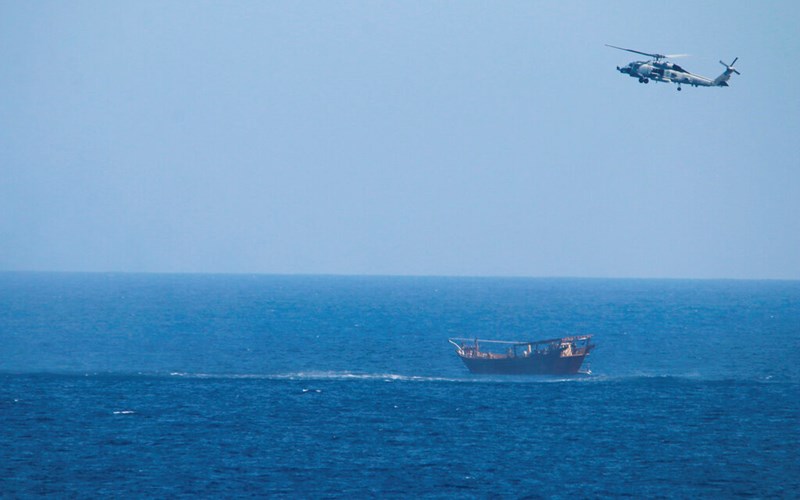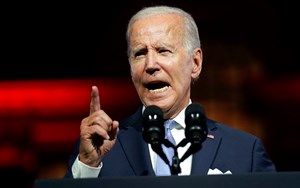As Israel's war on Hamas continues, its top ally needs to get on board with the idea of peace through strength, Avi Melamed – founder of Inside the Middle East – says.
U.S. Navy helicopters took fire from three small boats of Iranian-backed Houthi terrorists as the choppers responded to a distress call from a Maersk container ship (Maersk Hangzhou) on New Year's Eve. Navy personnel returned fire and sank the three boats, reportedly killing 10 Houthi fighters. A fourth boat of Houthis fled the scene.
The Navy flexed its muscles only after being fired upon. The U.S. needs a different approach, says Melamed.
"The U.S. Navy helicopters returned fire in self-defense,” a Navy statement said.
A statement from U.S. Central Command said the New Year's Eve ambush marked the 23rd attack by the Houthis against international shipping since Nov. 19.
The Houthis got within 65 feet of the Maersk and attempted to board, the statement said.
Before the attacks, more than 1,200 ships had traveled through the Red Sea without trouble since Operation Prosperity Guardian was announced in late December.
Denmark joins Red Sea coalition
The coalition originally included key European allies like Great Britain, France and Italy; but not important Middle East players like Egypt and Saudi Arabia.
U.S. Navy Vice Adm. Brad Cooper told The Associated Press that more countries are expected to sign on. Denmark is the latest addition as it announced last Friday that it intends to join the coalition.

"What the Houthis, Tehran and the wider region need to see if the U.S. is to complete its rehabilitation of its strength in the region, is proactivity by the U.S. forces and its allies in prosecuting attacks against Houthi targets; and ultimately – like it did in Iraq last month with Iranian militias there – the U.S. will come around to understanding that in the Middle East today, the best defense is a strong offense,” Melamed said.
It's been a while since the U.S. has been so aggressive. The U.S. did carry out two series of air strikes against Iranian militants in late November. The strikes were against separate command and control centers, a U.S. military statement said.
"The strikes were in direct response to the attacks against U.S. and Coalition forces by Iran and Iranian-backed groups,” the statement said.
The Houthis' efforts to disrupt Red Sea shipping represents the next "major test” for the U.S. in the Israel-Hamas conflict, Melamed explained.
The Red Sea is capped at the north by the Suez Canal, which sees the passage of roughly 50 ships. As of late December, about 32 ships had been diverted according to The New York Times.
About 15% of all European imports are transported by sea from Asia and the Persian Gulf, and most of that passes through the Suez Canal.
Will the U.S. choose Door No. 1 or Door No. 2?
The immediate future of this important trade channel basically comes down to the United States' willingness to use its resources to impose its will, Melamed claimed.
"There are two scenarios that can be the outcome. The first is that the Houthis continue to launch their attacks and harassment on commercial ships – which is bad for the U.S., its allies and the world but a major win for the Houthis and by affect their controllers in Tehran.
"The second scenario is that the Houthi threat ceases – either by negotiation or more likely by a U.S.-led attack showcasing the overwhelming strength that the U.S. and its allies will constantly bring to bear in response to Houthi attacks.”







